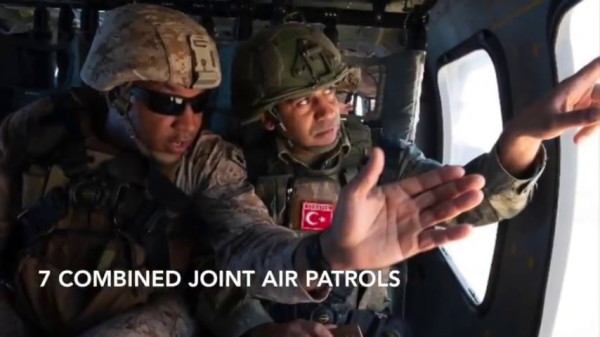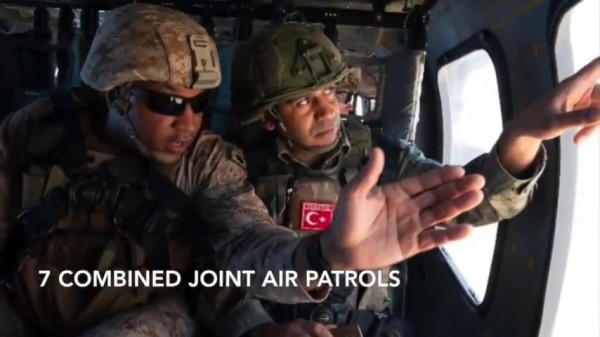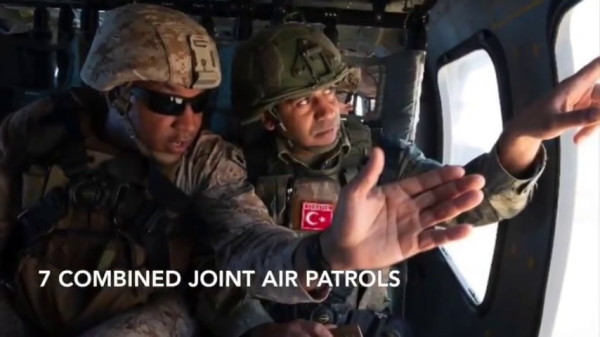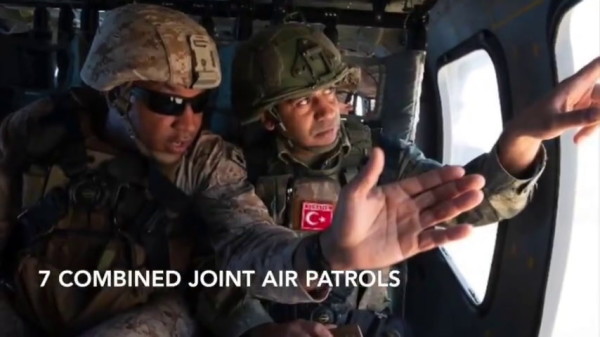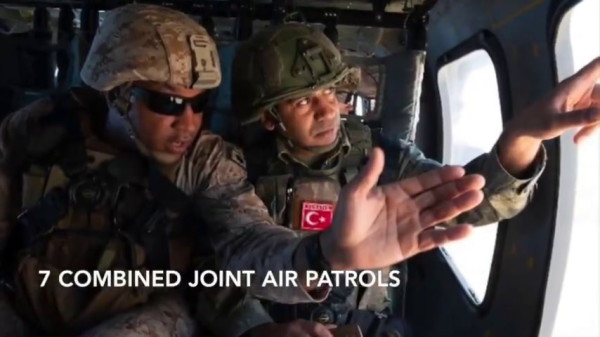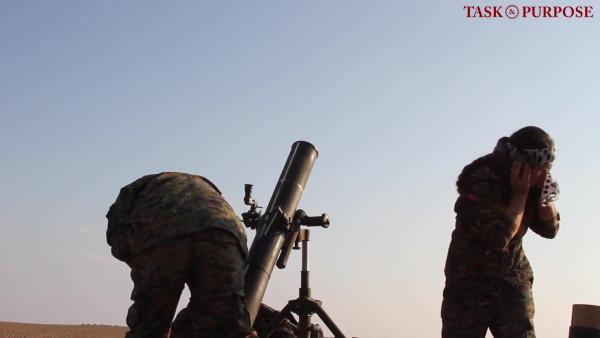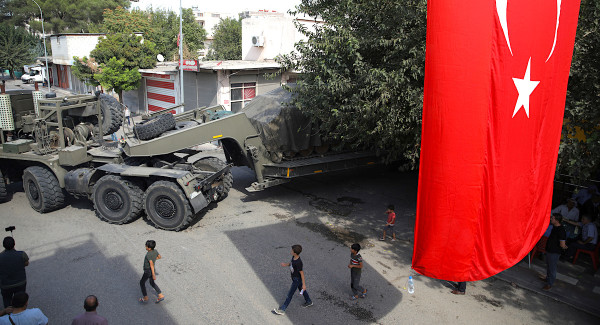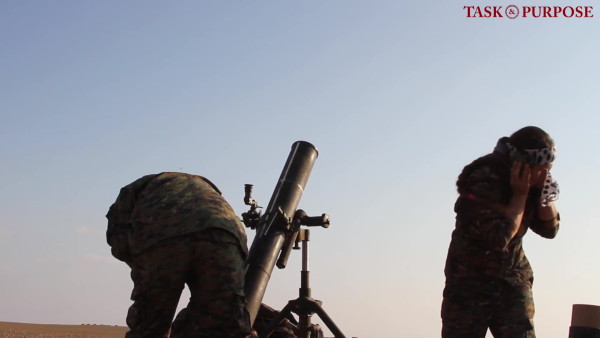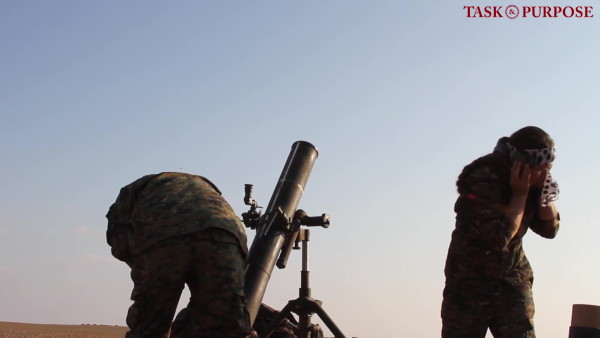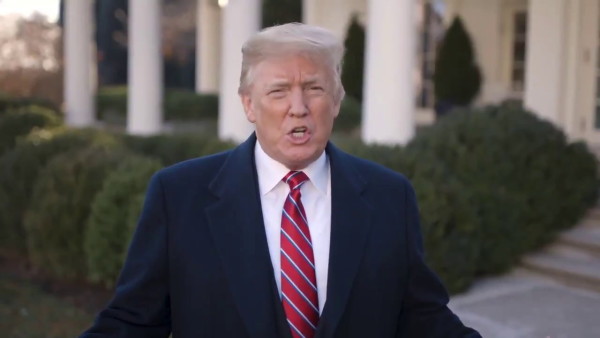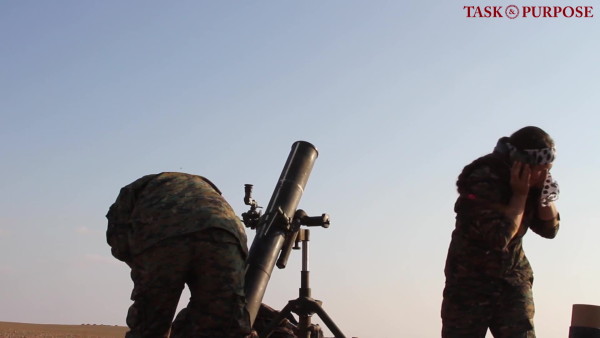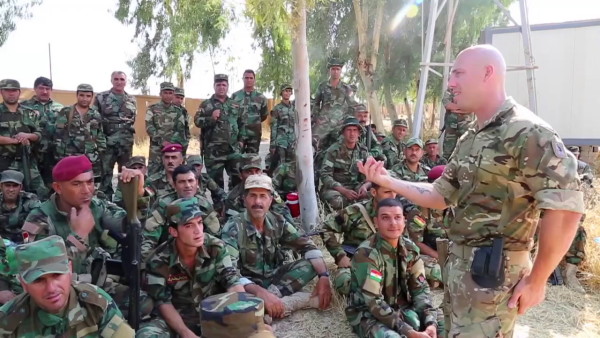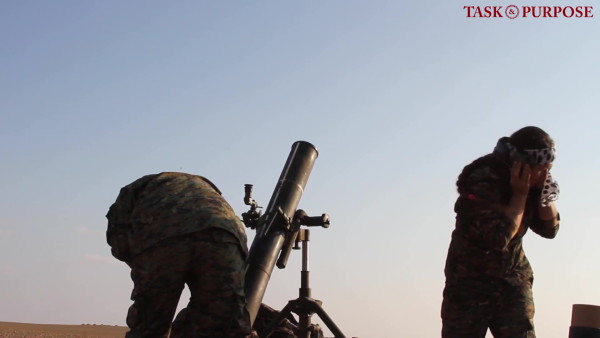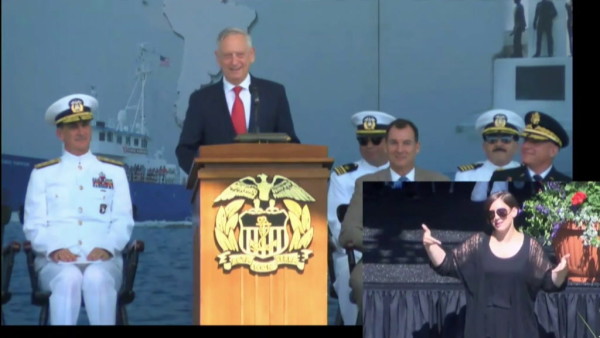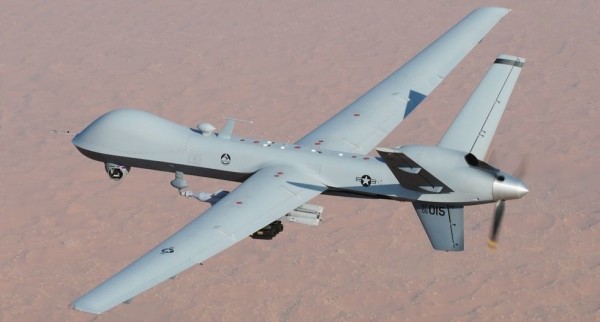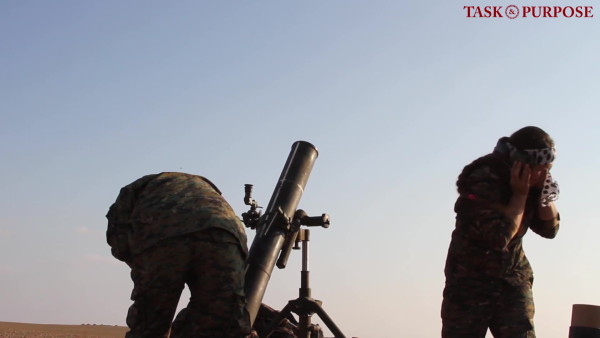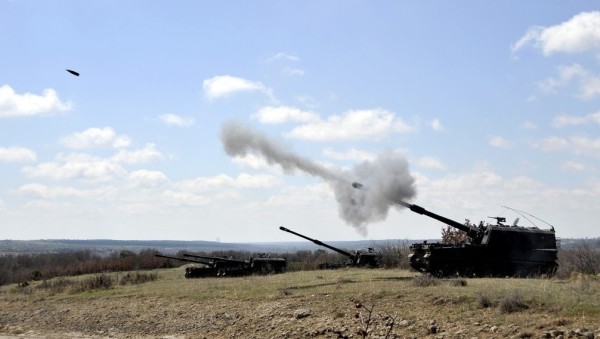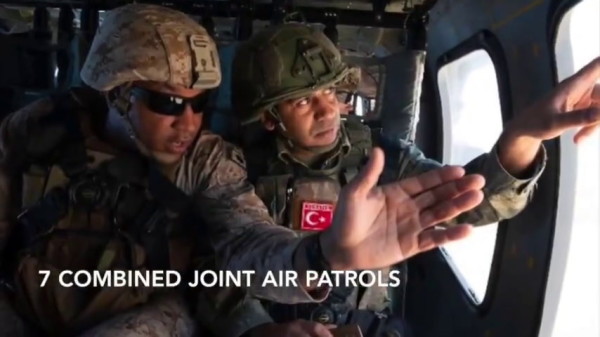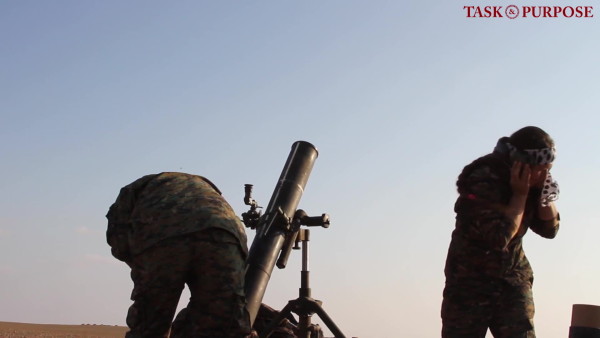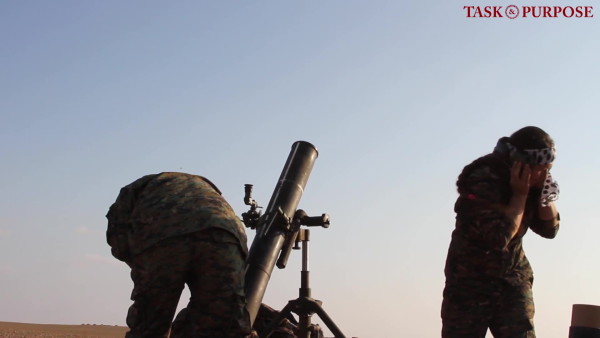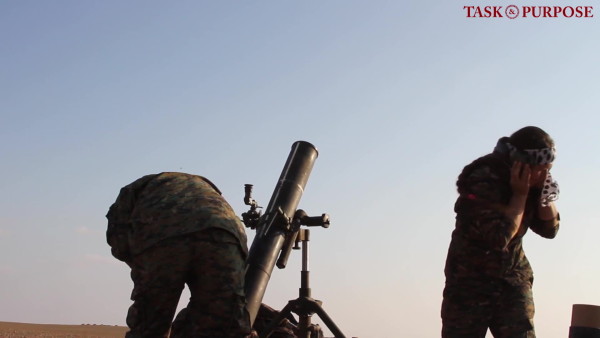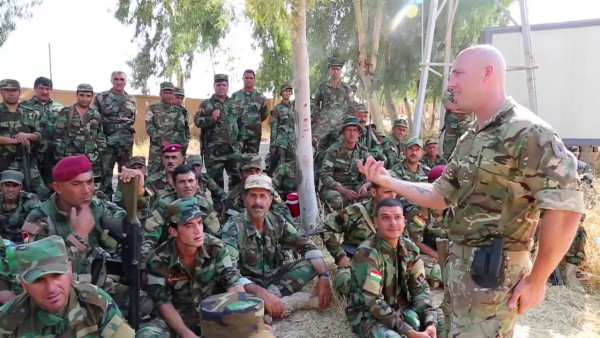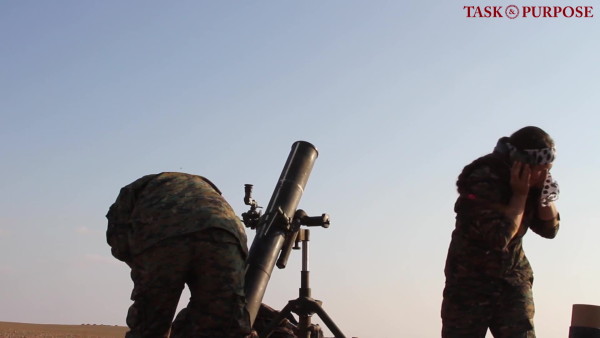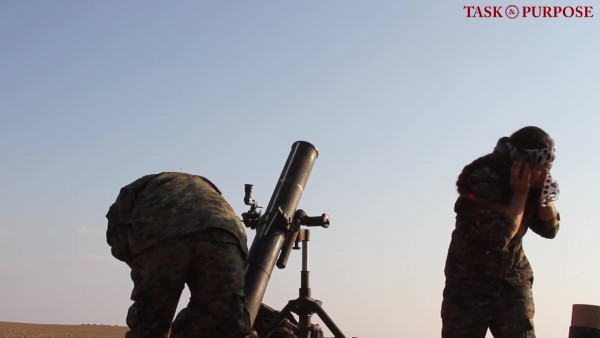The Turkish military and its Syrian proxies have begun ground operations into Kurdish-held northeastern Syria following airstrikes, Turkey’s defense ministry announced on Wednesday.
So far, the Defense Department has not issued a statement about Turkey’s invasion of Syria, which is officially called “Operation Peace Spring.”
Prior to the invasion, the U.S. military moved around 50 special operators to bases elsewhere in Syria. U.S. and Turkish forces had been conducting joint patrols to make sure that Kurdish fighters with People’s Protection Units, or YPG, withdrew from the Turkish border and dismantled their fortifications. But late on Sunday, the White House announced that U.S. troops would withdraw from the region because Turkey planned to launch a military operation into northeast Syria.
A Turkish miltary convoy is pictured in Kilis near the Turkish-Syrian border, Turkey, October 9, 2019.
(Mehmet Ali Dag/ Ihlas News Agency (IHA) via Reuters)

President Donald Trump’s acquiescence to the Turkish invasion has caused several Republican lawmakers to express alarm that the United States is showing it will not stand by its friends.
“I think it sends a terrible message to our partners around the world,” said Rep. Michael Waltz (R-Fla.), who is also a Green Beret.
“I was on the ground working with locals when President Obama announced the [Afghanistan] surge – but then in the same speech told everyone we were leaving. That was devastating in our partnership because people are risking their lives to work with you.”
On any given day, U.S. special operators are working with local allies in between 60 to 80 countries, said Waltz, who is serving as a lieutenant colonel in a National Guard Special Forces unit.
Waltz told Task & Purpose that he recognizes the president had to make a very difficult decision after it became clear that Turkey, a NATO ally, intended to attack the U.S. military’s Kurdish partners in the fight against ISIS.
While the Trump’s decision may help to improve the United States’ relationship with Turkey, it also opens a Pandora’s Box by allowing the Turks to attack Kurdish forces, who are guarding tens of thousands of ISIS prisoners, and that “essentially sets the conditions for a resurgence of ISIS,” he said.
The security situation would get infinitely worse if the United States withdrew all of its troops from Syria, Waltz said.
On Monday, a senior administration official told reporters that the withdrawal of U.S. troops ahead of the Turkish operation did not mark the beginning of the end of the U.S. military’s presence in the country.
“The American people want American troops as soon as possible and that remains our ultimate goal: to get American troops from the Middle East and to let the parties in the region determine their own future,” the official said. “But this is not the time for any such move right now. We’re moving 50 troops within Syria.”
Amid the outcry over Turkey’s attacks on Kurdish forces that fought alongside U.S. troops, it is important to remember that Russia and China are existential threats to the United States while ISIS is not, said retired Lt. Gen. Ben Hodges, former commander of United States Army Europe.
As a brigade commander with the 101st Airborne Division in 2003, Hodges worked with Kurdish forces in northern Iraq, so has a sentimental attachment to them, he said. But strategically, the United States may have erred by not fully appreciating how Turkey would react to providing the Kurds with weapons to fight ISIS.
Turkey is an “essential ally” against Russia because it controls the waterways that link the Black Sea to the Mediterranean Sea under the 1936 Montreux Convention, Hodges told Task & Purpose.
“In times of crisis, they could stop the Russian navy from sailing out of the Black Sea,” Hodges said. “Since 1936, they’ve done a very good disciplined job of making everybody live up to the letter of Montreux.”
“A U.S. Navy frigate can come up in there for 21 days,” Hodges said of the Montreux Convention. “That’s it. But it also says that Russia, for example, could not have a submarine from the Black Sea go out into to the Mediterranean or the Atlantic and do missions. It could only leave purely for the purpose of maintenance and then it would have to come back, and Turkey is who has their hand on the control switch.”

